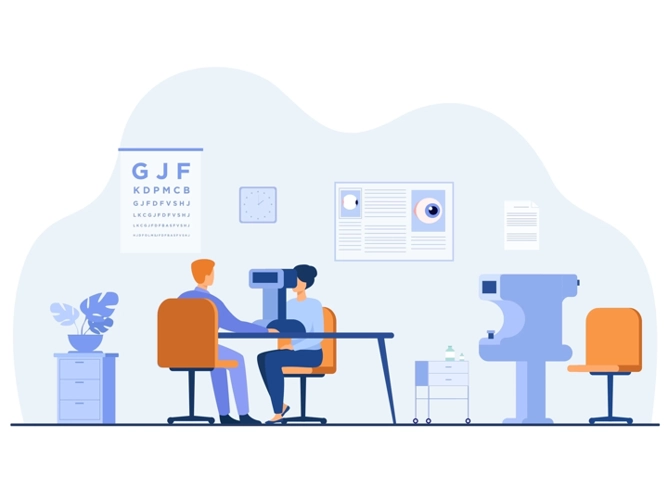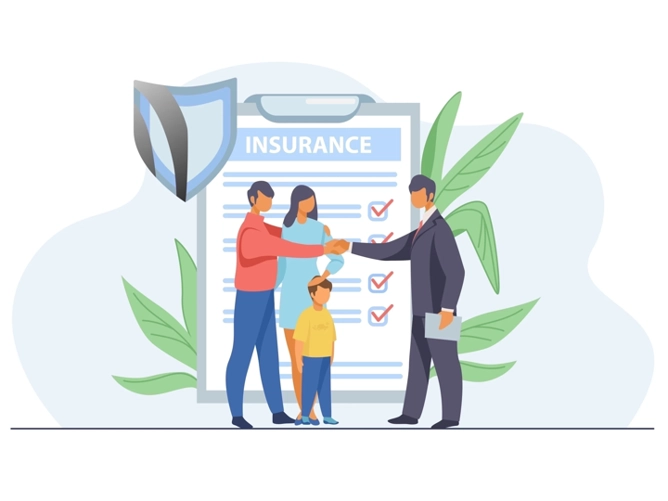
Buying Eyeglasses in Germany – Local’s Guide [2026]
Vision problems are getting more common, day by day. If you are up to buying new eyeglasses in Germany, you will surely need a bit of guidance. With the overwhelming number of options and the ambiguities regarding health insurance and eyeglasses, you can get off track real quick. Here is a guide to help you out through the entire process.
Where to Start?
Well, this is pretty much just as anywhere else in the world.
- To buy new eyeglasses, you should first visit your eye doctor. Get an eye test, so that you can have a number for your lenses.
- Then, buy your frame.
- Then get the right lenses fitted into your frame.
- Don’t forget to buy the required accessories, for example, the cleaning liquid.
A Detailed Step-by-step Guide to Buy Eye Glasses in German
Here is a detailed guide for buying eyeglasses in Germany. You will find all the information over here. We have guided you about each step connecting the scenarios with health insurance.
Ophthalmologist or Optician?
No matter how much you spend on your eyeglasses, if you did not go under a good eye test, you might have problems with your vision. Now, the question is whether your eye test is covered under your health insurance or not.
In Germany, public health insurance covers your eye test. But only if you are having one from an ophthalmologist. Eye tests from opticians are not covered by public health insurance.
On the other hand, the situation varies for private health insurance. Some private insurances cover eye tests from both ophthalmologists and opticians, some only from ophthalmologists, and others do not cover eye tests at all. Hence, if you have private health insurance, check with your insurance provider whether they can cover your eye test or not.
Apart from the budget issue, an ophthalmologist is still the better option. When you visit an ophthalmologist, he will not only get you your vision correction number, but will also check your eyes for any possible eye diseases such as glaucoma. Hence, save your money and take future precaution by visiting an ophthalmologist instead of an optician. However, do visit an optician after getting an eye test. He will guide you through the buying process of eyeglasses.
Buying the frame
After getting an eye test, the next step is to buy a frame. This can get really tricky, as frames are quite expensive in Germany. The non-brand, cheap frames start from around 120 euros. Hence, always make sure that you use your insurance as much as possible.
There are a few ways by which you can save a lot of money from your frame.
Ditch the brands
No doubt, brands have products quite better in quality and provide exceptional customer service. But the cost for this is a little too much. Their frames will almost cost you a fortune. Hence, it is always better to go for non-brand glasses. The quality might not be as good as the ones from the brands. But with some effort you can still find good quality glasses from somewhere, and that too within your range.
Here are a few stores that sell generic eyeglasses.
Apollo: Apollo sells cheap eyewear without compromising much on quality. Their products are not as good as big brands, but they are definitely somewhat comparable with them.
Fielmann: Fielmann is, no doubt, the cheapest eyewear seller in Germany. You would be amazed how you can save more than 70% by just choosing Fielmann for your eyewear. But they might take a week or two to prepare the product. Also, the quality might be a little lower than big brands. But the huge money difference can make up for the little difference in quality.
However, if you are willing to spend a huge amount, you can visit one of these stores or brands. Also, you can find some average budgeted products too.
Coco Leni: Established in 1946, Coco Leni is manufacturing high-quality eyeglasses from buffalo horns and acetate. You might not find their products as attractive as others, but their quality will surely make up for this margin in fashion.
Leidmann: If you live around München, you would have probably heard about Leidmann. Leidmann is, no doubt, the most popular eyewear brand in München. Their popularity is because of their unprecedented collection. They opt for the best products, irrespective of the brand name.
Herrlicht: Manufacturing their frames from 100% wood, Herrlicht is providing a very unique range of affordable eyewear.
Optik Breiderhoff: With his expertise as an optician, Brreiderhoff has the solution to all your eyewear-related problems. Apart from that, the peculiar interior is surely an attraction for the customers.
Amon + Sebold: No doubt, every optician store has one or two experts to guide you about the product. But Amon + Sebold has lifted the game quite up. They have arranged a team of over 25 expert opticians. These experts work for bringing the best to the customers.
Coblens: Coblens is currently providing its services in over 15 different countries. Their high-class glasses are both elegant and affordable.
Die Sehmänner: At Die Sehmänner, you will find a collection of the best products from most eyeglasses brands. Situated in Berlin, this store will definitely offer you affordable and chic products. However, if you are not up to traveling to Berlin, just visit their online store.
Manufakturbrille Jörn Dackow: Though at Jörn Dackow you might not find the cheapest glasses, you will not be disappointed regarding the quality and designs. They, without any doubt, manufacture the best-customized eyewear in town.
Schaulust: Under the supervision of Claudia Riedel, Schaulust has been selling its best products for over 20 years.
Düsseldorf Eyewear: This newly found start-up is particularly known for its thin-framed titanium eyeglasses.
Die Dieker’s: Stefan Dieker, the owner of Die Dieker’s, is the guide you need. He not only knows everything about the frames but the lenses too.
Hornschmiede Robert Schippel: Established in 1925, Schippel is manufacturing the perfect eyewear for customers in Erfurt.
Grafix Eyewear: Grafix has taken the game to a new level by using technology to its fullest. They have apps to try on glasses virtually. Also, the graphically designed frames are top-notch in fashion.
Colibri: The huge collection of branded and non-branded glasses at Colibri will help you out in finding one according to your demand and budget. However, if it fails to do so, you can always get customized glasses from Colibri.
Use Your Insurance for Eye Wear
When buying frames, always check with your insurance provider. However, in the case of public insurance providers, they almost never pay for eyeglasses. But the case is different for private health insurance. Do not forget to check with your insurance provider. You can, probably, save a good amount.
Can I Write off Eye Glasses from my Taxes?
YES !! You can as Außergewöhnliche Belastung
Außergewöhnliche Belastung means an Extraordinary Burden. You will be quite amazed to know that, in Germany, eyeglasses are considered an extraordinary burden.
If your insurance does not cover your eyeglasses in Germany, you can get that included in your taxes. You just have to keep the receipts for both the eye test and the eyewear. While paying your taxes, show these receipts under the category of extraordinary burdens, Außergewöhnliche Belastung. In this way, the amount will be deducted from your overall taxes.
Getting Lenses Fitted Into The Frame
Once you have selected the right frame, it is time to get lenses. No matter how perfect your frame is, if you fail to get the right lenses then all your efforts will go in vain. Hence, be very careful about that. Opt for the best opticians in town and do remember to go through reviews.
Another major issue is the budget. Lenses can get quite expensive. Hence, do check with your health insurance.
- If you have public health insurance, your insurance will cover your lenses under specific circumstances. For example, in cases of myopia or hyperopia of over 6 dioptres. In case of astigmatism, your lens power should be over 4 dioptres. In other words, if your eyesight is weak enough to consider you as a handicapped, your insurance will cover the expenditure. Otherwise, you will have to spend your own money.
- Public health insurance also covers eyewear expenditure that is required after an eye surgery.
- However, children’s public health insurance covers their lenses in all cases.
- Private health insurance might or might not cover your lenses. You will have to contact your insurance provider to get the exact information.
However, you will have to buy lenses within 4 weeks of getting an eye test. Otherwise, no insurance will cover the expenditure.
Buying Accessories
Your health insurance might or might not pay for your eye test, eyewear, and lenses. But in the case of accessories, for example, the cleaning liquid, you will always have to pay money on your own.
Now the question is, where to buy accessories? Well, almost all the stores that buy eyewear, have a stock of accessories as well. You can just buy them while buying the frame.
The Bottom Line
Germany is one of the most developed countries, with its markets being customer friendly. But that’s not the case in the eyeglasses market in Germany. Not only are they super expensive, but are also mostly not covered by insurance. Hence, if you are looking to buy eyeglasses in Germany, make sure you do that after extensive research.

Jibran Shahid
Hi, I am Jibran, your fellow expat living in Germany since 2014. With over 10 years of personal and professional experience navigating life as a foreigner, I am dedicated to providing well-researched and practical guides to help you settle and thrive in Germany. Whether you are looking for advice on bureaucracy, accommodation, jobs, or cultural integration, I have got you covered with tips and insights tailored specifically for expats. Join me on my journey as I share valuable information to make your life in Germany easier and more enjoyable.


![Best Apps to Learn German [Free + Paid]](https://liveingermany.de/images/best-app-to-learn-german/best-top-free-and-paid-learn-german-app-with-pros-and-cons.svg.webp-668w.webp)


